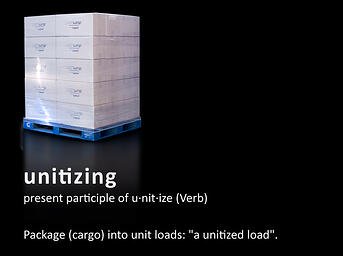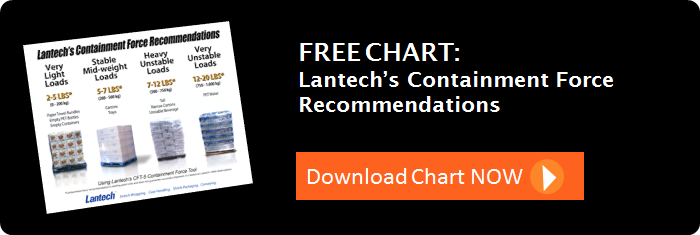 Unitizing is just one of the many specialized terms we use in the stretch wrapping industry.
Unitizing is just one of the many specialized terms we use in the stretch wrapping industry.
In fact, the idea of stretch wrapping and unitizing owes its development and success to a few of its forebears: floor loading, steel strapping, and shrink wrapping.
It started with floor loading. Floor loading was a way of unitizing a whole truck. A team of people were used to tightly pack each individual box in immoveable layers until the truck was filled. This was quite labor intensive, and it took a long time to load and unload.
Steel straps were the first mechanism used in unitizing products to pallets. They were run around the load, over and under pallets and products. They worked well, but it proved to be an inexact science that was both labor intensive, and mechanically complicated. Many smaller businesses still use these systems for occasional loads, especially when shipping single items like a piece of equipment.
Shrink wrapping was a way of completely containing and unitizing loads that steel straps couldn’t. A large plastic sack is loosely pulled around an entire palletized load, then put in a huge oven-like heater or blasted with a heat gun. The heat is sufficient to tighten the plastic around the load, unfortunately it’s extremely costly to produce that heat, and it takes extra time. You may have seen bottles of water shrink wrapped in this manner, which is fine for smaller loads, but it can be cumbersome and time consuming to do it for pallets.
During all this time, most shippers reserved stretch wrapping to make only their most difficult or “problem” loads safe to ship because of the high cost of stretch film. But new stretch wrapping technology like “prestretch” tripled the yield of a roll of stretch film and made stretch wrapping cost effective and efficient for all products and loads. Today, stretch wrapping is the world-wide standard for unitizing loads.
Unitizing is just one of the contributions the stretch wrapping industry has made to the shipping world. By reducing shipping damage and making loads safe to ship, it has helped manufacturers and customers save money and reduce downtime and helped shippers avoid heavy losses and angry customers.
For more information on stretch wrapping, you can contact us on our website or call us at (502) 815-9109.
Click here to read a related blog: 3 Ways to Improve Your Stretch Wrapping Success
This post was published on August 15, 2013 and updated on September 13, 2017.
August 15, 2013


